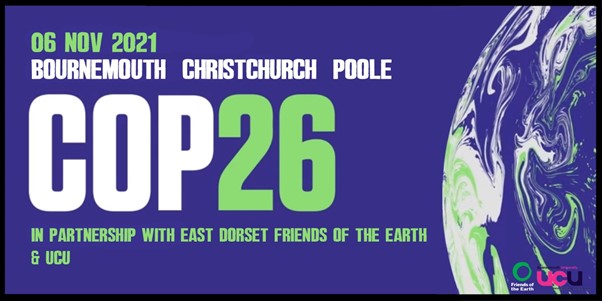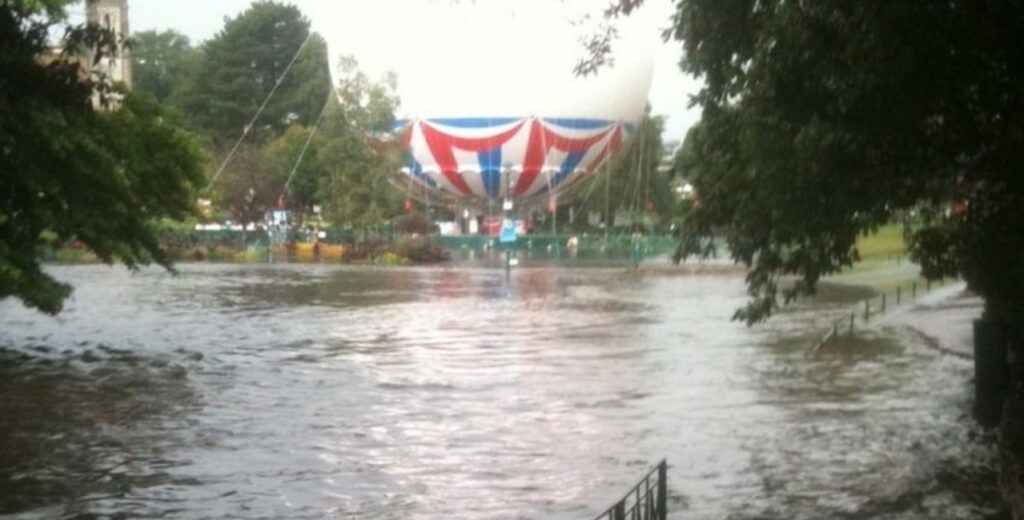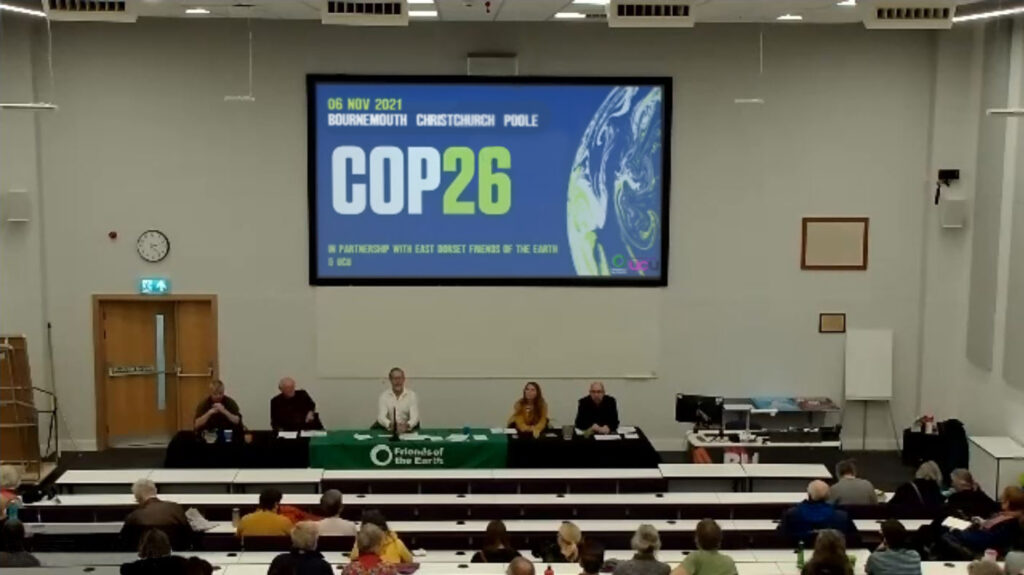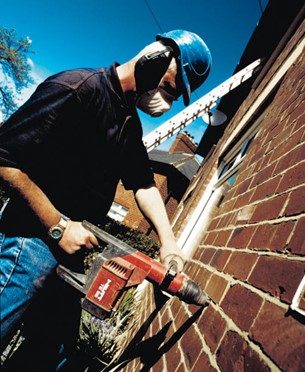Angela Pooley – Co-ordinator East Dorset FoE & LNP Board Member and Dr Martin Price – East Dorset Friends of the Earth
Panel Discussion at Bournemouth University, 6 November 2021
“Bio-change and sea-level rise will destroy a major, fundamental part of the economy of Bournemouth, Christchurch and Poole”. These were the opening comments of Local Nature Partnership Chair, Luke Rake, at the Climate Action Coalition event held at Bournemouth University on Saturday 6th November – part of a global day of awareness-raising by charities and non-governmental organisations as part of COP 26.

Organised by East Dorset Friends of the Earth (FOE) and the University Staff Union (UCU), the event took the form of a “question-time” discussion. Chaired by Layne Hamerston, Community Partnerships Manager at the University, the Panel also included Mark Kibblewhite, Chair of Dorset Wildlife Trust, Councillor Vikki Slade, Liberal Democrat leader on BCP Council, and Dr Martin Price from East Dorset FOE.
Initial questions from the 60-strong audience considered the likely effects on the BCP area of changes to our climate which are already unavoidable, and on the consequences of doing insufficient now to reduce emissions of the greenhouse gases which will cause future climate change. These effects included flooding of low-lying coastal and river valley areas, increasing summer heat and drought, more intense winter rain and storms, and new diseases and health risks. As Mark Kibblewhite pointed out, BCP cannot be separated from global changes; the impacts of droughts, storms and floods elsewhere will reduce food security (meaning price rises, and there may be possible shortages in the UK), and increase migration pressures from the worst affected areas of Asia, Africa and South America into Europe and North America.
The key message of the Panel, however, was positive. As Mark Kibblewhite put this, “it is not difficult to see the things that are coming towards us? The big question is, how do we respond creatively towards them?” The Panel agreed that climate change provided real opportunities to improve the quality of life. And, as Martin Price pointed out, this particularly meant for the poorest and most disadvantaged, both globally and in the UK: what could be called, a levelling-up agenda!

The way forward was seen as involving two strands: simple changes that can be made by individuals and businesses (roughly half of our emissions, according to the UK Committee on Climate Change – the CCC) and those which required policy changes by decision-makers at local, and particularly at national, level. About one-third of these policy changes lay within the powers of local councils (CCC).
Flooding in Bournemouth in 2011 © Matthew Bond
Individual change, as Luke Rake pointed out, is encouraged by emphasising the rewards of doing things differently. People will act to reduce their own impact on climate and nature when they can see the benefits to themselves. By promoting the “feel-good” element of behaving differently, and by realising that a low climate-impact lifestyle can also be healthier, less stressful and more enjoyable, people can be encouraged to embrace change, knowing that it will have positive benefits for them and their families.

However, the Panel recognised that there is a corollary: those areas of activity beyond individual control require government interventions. Again, some of these use “nudge” mechanisms; ways in which taxes, grants and government investment can promote new ways of doing things. Other changes can only happen, as Mark Kibblewhite argued, by better regulation. Even here, as Vikki Slade explained, those organisations such as Water Authorities charged with regulation of waste water and sewage management, cannot easily act when Government stipulates that lowering water prices should have priority over investment in cleaning up our waterways.
Event Panel © Stephen Harper
Luke Rake gave good examples of how a combination of changes in the Government system of support for farmers and wider commercial pressures are combining to nudge famers towards land management approaches which have lower carbon emissions, enhance nature, and reduce flooding and chemical runoff. At the same time, technical advances will mean that more of our food will be produced within urban areas such as BCP.

In wider terms, this will be part of the process of progressively re-configuring our towns and cities to reduce greenhouse gas emissions. What the CCC calls “place-shaping” must become the dominant principle behind local land-use and transport planning. As Martin Price stressed, this will include reducing the need to travel, greater use of public transport, more local energy production from renewables, and a major emphasis upon making our existing buildings more energy efficient.
Cavity Wall Insulation © BCP Council
The Panel strongly agreed that one of the most important individual responses that people can make to climate change is to hold local and national politicians to account. This can be done by communicating concerns and seeking responses directly from councillors and MPs, or by becoming involved with lobbying groups. As one audience member pointed out, this also means talking to our neighbours, to share our concerns and insights, and to encourage more members of the local community to take positive action.
Luke Rake concluded by saying that “the clock is ticking – but beating people about the head (metaphorically) is not the way to get people to engage. We need to find ways to engage, as advocates for climate improvement and biodiversity recovery, and work with people to go forward.” As Mark Kibblewhite pointed out, this includes “speaking truth to power”. It also means questioning our own integrity as individuals, as to whether we are living in ways which minimise our potential impact on climate and nature. And it is about equity; not allowing those who “have” to have more whilst many do not have enough to live a decent life, and do not have access to the means to avoid the worst effects of climate change and degradation of our natural systems.
Initial feedback from the audience was highly positive, and it was felt that this should be the first of many such opportunities for wider public engagement.
